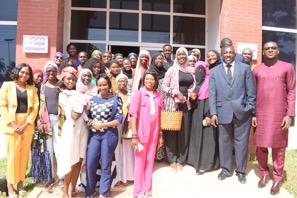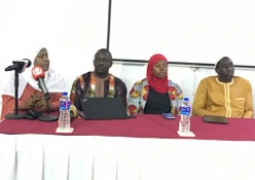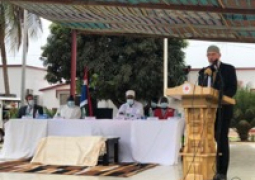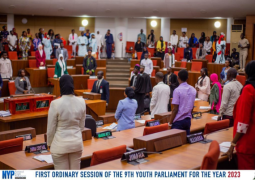
The program focuses on the use of Intellectual Property (IP+) in strengthening the competitiveness of Small and Medium Enterprises (SMEs) in The Gambia.
It will support 50 SMEs in The Gambia. The SMEs are currently undergoing training and mentorship to acquire knowledge on key processes, which include IP tools, and support needed in acquiring IP rights and making effective use of IP tools for business purposes.
The implementation of the project would advance the selected SMEs’ participation in the global IP ecosystem and broaden their knowledge, providing them with the opportunity to capitalise on IP tools to gain competitive business advantage in local and global markets.
It is also meant to strengthen the competitiveness of SMEs in The Gambia through the use of Intellectual Property (IP+).
Loretta Asiedu, acting director of WIPO’s Division for Africa, in her remarks said that mentees are now being equipped with knowledge on key processes, IP tools, and the support needed in acquiring IP rights and making effective use of IP tools for business purposes.
She added that the successful implementation of the project will not only advance their participation in the global IP ecosystem but also broaden their knowledge, providing them with the opportunity to capitalise on IP tools to gain competitive business advantage in local and global markets.
Hussien Thomasi, Solicitor General & Legal Secretary said that Intellectual Property can be a valuable asset that will set SMEs apart from their competitors and help them thrive in the marketplace. He emphasised that IP is a superpower that can give SMEs a competitive edge in the market and play a vital role in their growth and sustainability.
David Jeng, GCCI Board Director and Lead Consultant gave an overview of the project and what is expected of the SMEs. He underscored the need for SMEs to gain Intellectual Property protection to grow their businesses globally and harness the opportunities of the AFCFTA.
Hasan Kleib, WIPO Deputy Director General, Regional and National Development Sector (RNDS) highlighted the significance of the project and its potential impact on SMEs in The Gambia.
Mr Kleib underscored the importance of SMEs, which form an essential component of the national economy and provide a crucial source of employment for youth.
He noted that around 55% of Gambia’s population are under the age of 25, and more than 40% of SMEs in The Gambia are youth-owned.
H.E. Prof. Muhammadou M.O. Kah, Ambassador, Permanent Representative The Gambia to the United Nations Office in Geneva, highlighted that the Project comes at a particularly crucial time for The Gambia as it aspires to propel growth with an emphasis on STEM; launched her newest National Development Plan named ‘Yeriwa”, turning the country’s demographic boom into a demographic dividend, reducing unemployment rates – especially among the young, and tapping into the phenomenon of return migration.
“In today`s competitive and dynamic global business environment, it is not enough to be just creative and innovative, rather businesses need to understand the value of their creation, how to market it, and how to build a portfolio of IP rights to protect it in a way that helps generate revenue and wealth.” Kah said
He however thank and appreciates the Leadership of the World Intellectual Property Organization (WIPO) for initiative under the visionary leadership of DG Darren Tang.




